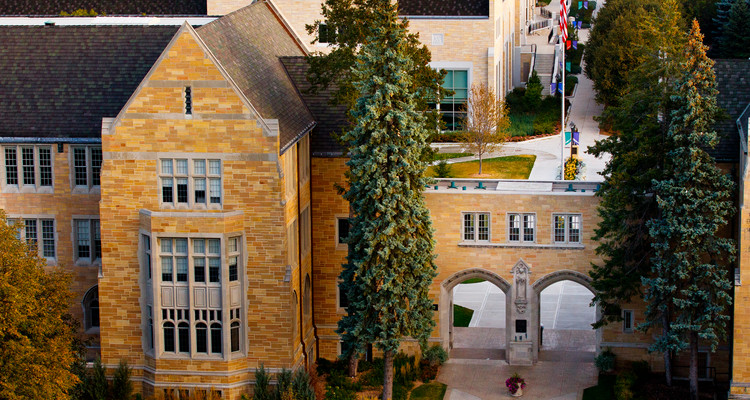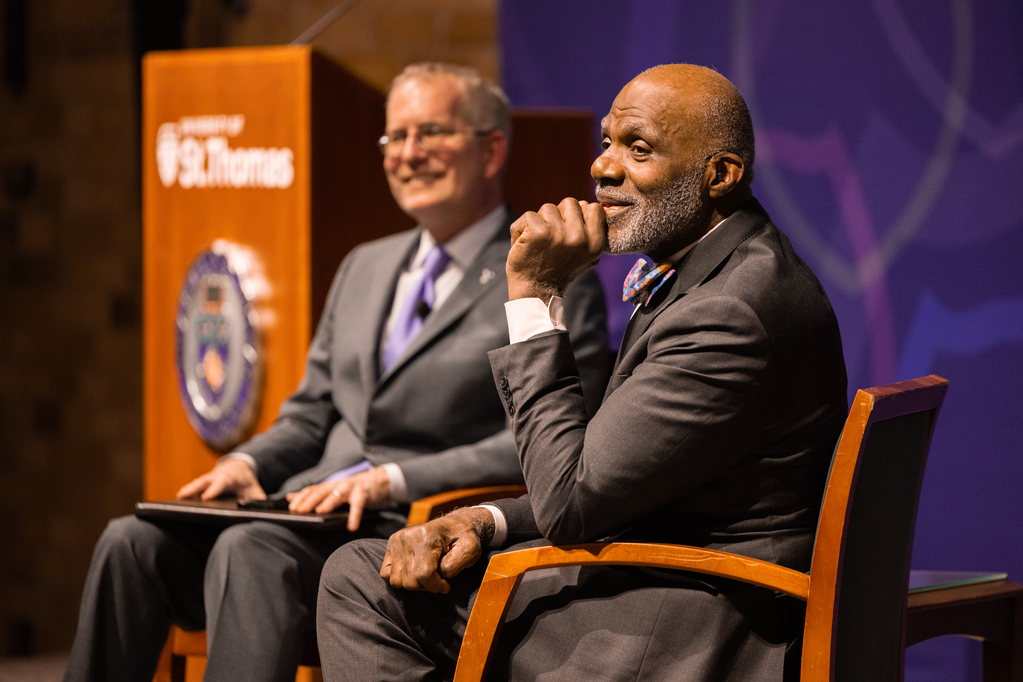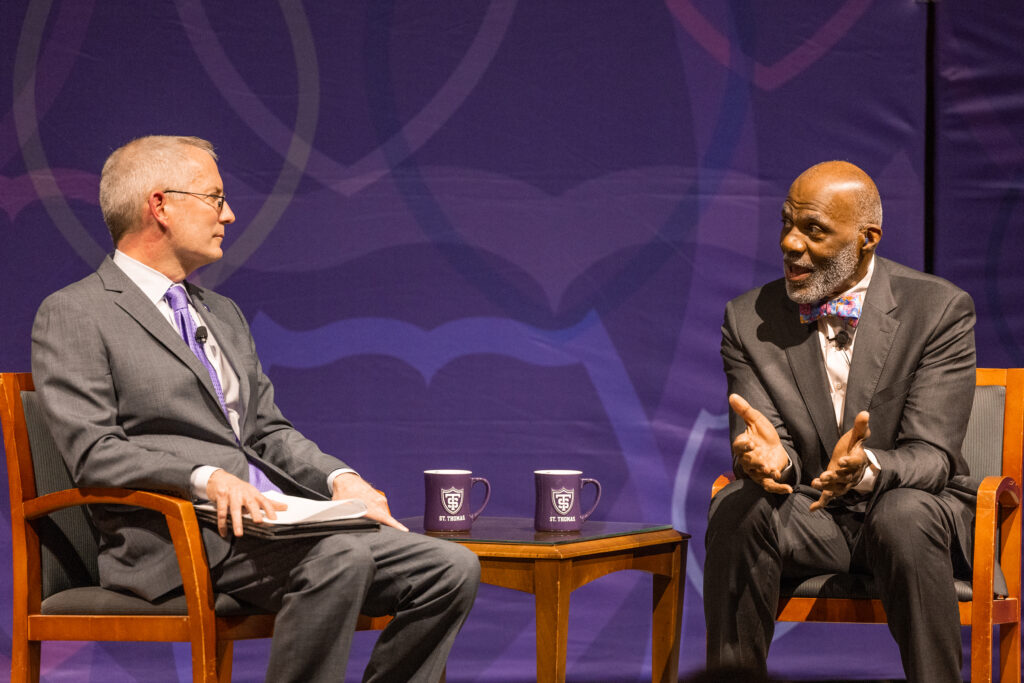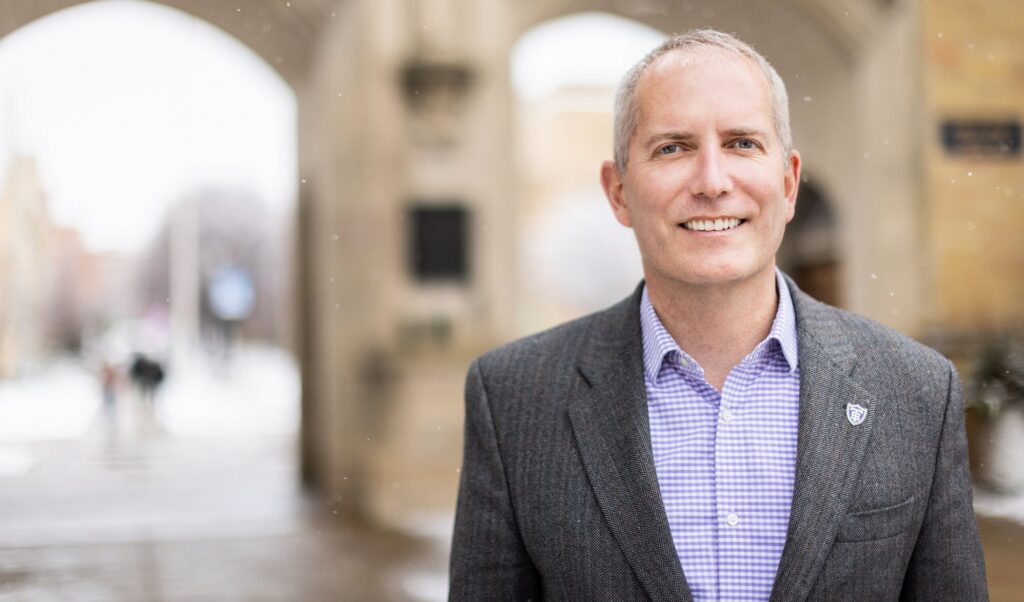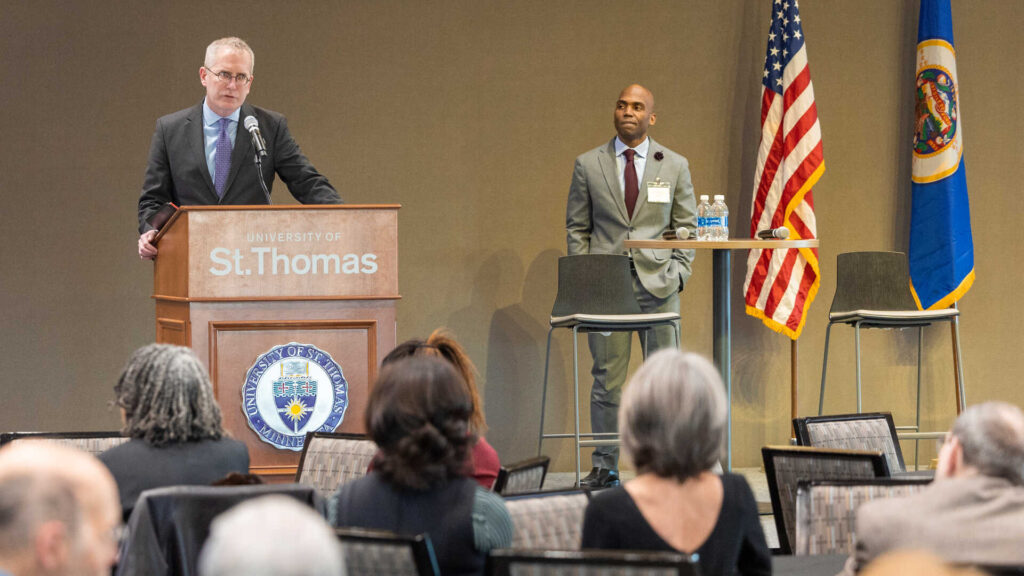St. Thomas President Julie Sullivan has outlined a plan to address adjunct faculty concerns following the certification of election results against union representation.
The National Labor Relations Board on Tuesday certified the results – 136 opposed and 84 in favor – after a seven-day period in which Service Employees International Union Local 284 did not file formal objections about the campaign or election. The certification allows St. Thomas to resume its work on adjunct faculty concerns.
Sullivan responded to the certification in an email letter to all adjunct faculty, stating:
“I am very proud of our adjunct faculty and of the entire St. Thomas family. It is an honor to serve as your president. We can be a role model for creating and sustaining an academic community through open and transparent dialogue where all members are respected, feel valued, and are focused on student learning and outcomes. . . .
“As I indicated last week after the votes were counted, I am moving forward immediately with an action plan to address the top-level adjunct faculty priorities identified over the past year. I am pleased to share that plan with you today.”
Here are the plan’s primary components:
- Dr. Richard Plumb, who took office July 15 as executive vice president and provost, will solicit adjunct faculty interest in serving on a new Adjunct Faculty Task Force that will provide input to the administration on the plan over the next few months. The task force will provide recommendations and feedback on proposals developed through the early fall and will recommend voting mechanisms to create an elected Adjunct Faculty Council. The task force will be dissolved when the council is established.
- The Adjunct Faculty Council will serve as an advisory body involving adjunct faculty voices from across the university. It is anticipated that the council will provide a forum for adjunct faculty to communicate and interact with each other, identify opportunities beyond already-identified priorities, and strategize ways of better integrating adjunct faculty into the St. Thomas community. “Ultimately,” Sullivan wrote, “our goal is to provide adjunct faculty with a variety of participation options to meet varying preferences for levels of involvement.”
- Michelle Thom, associate vice president for human resources, will work with her staff to develop proposed alternatives for adjunct faculty to participate in the university’s benefits program, taking into account the range of workloads. Sullivan asked her to address health care benefits as the first priority in the analysis, which will be completed this fall, because it is the benefit for which adjunct faculty have consistently indicated the greatest need over the years. The Adjunct Faculty Council will consult with Human Resources on additional benefits priorities.
- Sullivan will send a letter this week to the chair of the Faculty Affairs Committee (with a copy to the chair of the faculty) requesting that the committee draft policy language for the Faculty Senate to consider this fall to provide for adjunct faculty representation on the Senate.
- Plumb will begin work this summer with deans and department chairs to ensure there are opportunities within all academic units for differentiated adjunct faculty contracts based on the number of courses they teach and other varying levels of participation.
- Plumb will lead an effort to develop a proposal for reviewing potential increases to adjunct faculty salaries each year during the annual budget process, beginning with this fall’s planning for the 2015-16 budget. He will work with deans and department chairs to establish consistent timelines for issuing adjunct faculty contracts.
- Plumb will collaborate with Dr. Ann Johnson, director of the Center for Faculty Development, to design workshops for department chairs to share best practices on fully realizing and recognizing the contributions of adjuncts within their departments.
- Johnson, with input from adjunct faculty, department chairs and deans, will develop a plan for providing greater funding mechanisms for adjunct faculty development. Sullivan’s office will fund this plan in 2014-15, and it will be included subsequently in the university’s budget.
“I firmly believe the action plan sets the stage in providing an exceptional opportunity for all of us to work together directly and collaboratively to address your concerns while improving the quality of education at the University of St. Thomas,” Sullivan concluded in her email to adjunct faculty.
